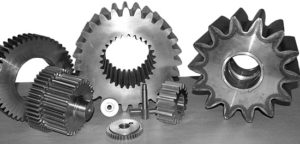
Your car’s transmission is one of the most important parts of your vehicle, and transmission problems with your vehicle can result in rendering your vehicle completely undrivable. The transmission in your vehicle is the part of the car that directs the power from your engine to the driveshaft which in turn helps to turn the wheels on your vehicle. Following good preventive maintenance procedures for your transmission will always help your transmission perform better, last longer and require fewer repairs. However, in the event that your transmission does have problems, knowing what some of the more common types of transmission problems are can help you quickly diagnose and repair them. So, here is a list of the most common type of transmission problems.
Low Fluid Levels or Leaks
Low levels of transmission fluid or transmission fluid leaks are by far the most common type of transmission problem. Low levels of transmission fluid are usually caused by leaks in the transmission system itself. The seals in the transmission or driveshaft may become faulty and leak fluid. Occasionally, transmission gasket seals may need to be replaced to seal the leaks in the transmission. On some occasions, transmission fluid may be contaminated from coolant in the radiator. This is called cross-contamination and does occur on occasion.
Generally speaking, symptoms of low fluid levels or fluid leaks will include gear slippage or slow shifting. In the event fluid is very old or contaminated, the fluid will need to be changed or the transmission completely flushed and refilled.
Torque Converter Problems
Torque converters and transmission can be the source of several types of problems that can result in transmission damage or failure. One of the most common problems associated with the torque converter is worn or damaged needle bearings. If the needle bearings become warm, you will generally hear strange noises coming from the transmission while in driving gears. When the vehicle is in neutral, the transmission will probably not make any strange sounds, but when in a driving gear will make grinding or brushing sounds.
Solenoid Problems
The solenoid controls the flow of fluid throughout the transmission. Many times, the solenoid can become damaged because of insufficient fluid levels or other electronic problems with the solenoid. Problems with the solenoid are usually similar to those of inadequate fluid levels or fluid leaks. If your vehicle’s transmission is slipping and there are no leaks, the solenoid is the next item that you should check.
Clutch Problems
The clutch is located within the torque converter and can occasionally become jammed. When the clutch jams, the solenoid may become locked and the amount of transmission fluid in the torque converter may not be correctly calculated. These type clutch problems in the torque converter also appear very similar to low fluid levels. Clutch problems will also normally cause violent shaking underneath the vehicle and may produce very high heat levels in the transmission. You will normally also notice a very sharp drop in the power output of your engine.
SOURCE:carsdirect
